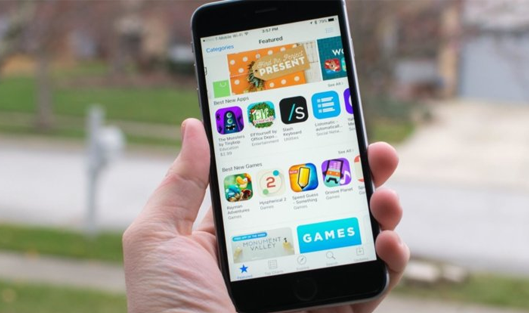
Applications in AppStore
Apple (NASDAQ:AAPL) on Wednesday said it will cut the fee charged to application developers for accessing the App Store by half (up to 15%) if their annual net sales on the platform are less than $1 million.
Apple charges 30% commission for developers of paid mobile applications and for purchases inside applications in the App Store. This shop is for most people today the only way to install software on their iPhone.
Many may see this change in Apple's approach as a step towards legislators and developers of applications for the App Store, as this year the company was severely criticized for its policy.
From the beginning of the year, the rules of Apple's new small business programme will apply.
Those who made a profit above the $1 million threshold will be billed at the standard rate of 30%.
The main beneficiaries of Apple's policy change will be those developers who offer virtual education courses or lessons through a fixed fee application. Apple does not charge a fee for material goods purchased through the applications, or for booking face-to-face classes or ordering through Uber. However, commission will be charged for events that are held online.
In a separate announcement on its website, Apple has highlighted the application for swimming coaches, the children's programming application and indie games as companies that can benefit from policy changes.
The new rules should not be confused with Apple's similar practice, according to which those large companies that use the App Store's services during the second year of subscription or more pay a lower commission rate of 15%.
The new policy will not affect the manufacturer of mobile games Epic Games in any way. To date, Epic Games has earned over $1.2 billion from the App Store, which deprives it of the right to reduce its commission.
Spotify, which is also challenging the App Store's fees, reacted to this change on Tuesday.
The CEO of Spotify Daniel Ek said: "Apple's anti-competitive behaviour threatens all iOS developers, and this last step demonstrates once again that their App Store policy is arbitrary and capricious".









